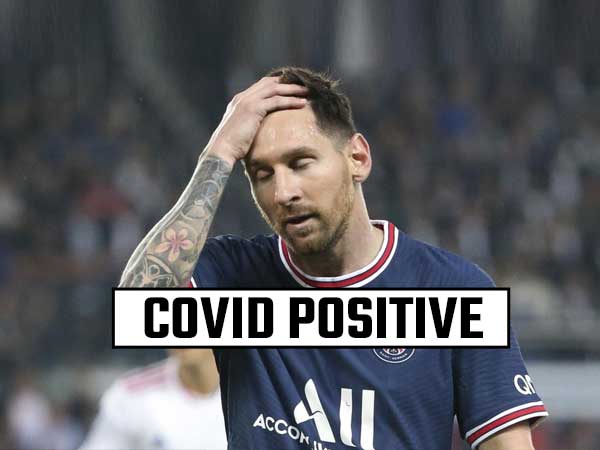
Picture Credit: Twitter
As the world continues to fight the dreaded Coronavirus pandemic, Paris Saint-German superstar Lionel Messi has tested positive for the infection. The star Argentine along with three other players have returned positive results for the Test, the same was confirmed by the Ligue 1 club on Sunday.
The club further conveyed that Messi and others are currently in isolation and all proper health protocols are being maintained by the infected individuals. While the news is huge given the involvement of a global icon like Messi, the worldwide trend shows that yet another wave, triggered by the Omicron variant of the virus, is likely to peak in the coming few months.
As seen and experienced in the first two waves, sporting events and tournaments are among the most severely impacted.
While the club had earlier mentioned that one of their staff members also got infected on Saturday night, no names were revealed until then. But on Sunday, the club has categorically mentioned the names of Messi, left-back Juan Bernat, backup goalie Sergio Rico and 19-year-old midfielder Nathan Bitumazala.
Ashes hit by COVID-19 over 15,000 kms away from France
Ligue 1 isn't the only tournament to get impacted by the virus with several Premier League matches already getting affected. Moreover, the Ashes Series happening in Australia has seen players as well as England's head coach Chris Silverwood being tested positive.
In fact, with the growing number of cases in Australia, over 15,000 Kms away from France, there is a talk about shifting all the Big Bash League games to a single venue in Melbourne. The current developments are eerie reminders of the years gone by 2020 and 2021 which saw the emergence of the Alpha and the Delta variants of the Coronavirus which wreaked havoc around the globe.
Even the world's biggest sporting event the Olympics had to be pushed back by a year and even then there were protests in Tokyo since there was a lot of influx of people as the number of infections had not totally died down but were on the rise. In such a case, it would be interesting to see how the sporting ecosystem adapts itself before COVID puts a complete full stop to the events.
